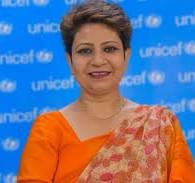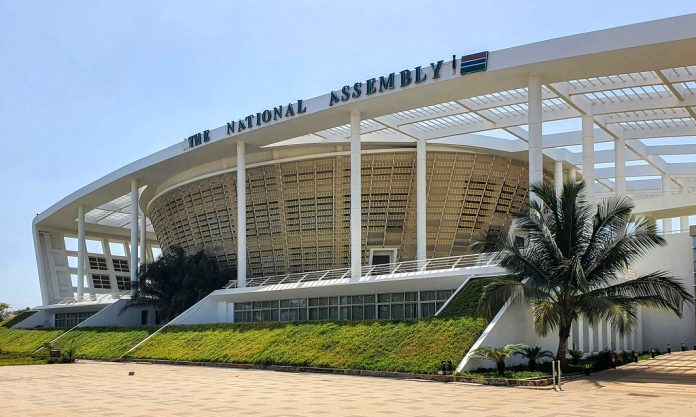UNICEF, UNFPA Alarmed By Proposed Repeal of Law Banning FGM in The Gambia


The UNICEF representative in The Gambia, Nafisa Binte Shafique, and the UNFPA representative in The Gambia, Ndeye Rose Sarr, have issued a joint statement in Banjul on 21st March 2024, expressing their deepest concerns on the potential reversal of decades of work they have invested in protecting the rights and dignity of women and girls over the proposed repeal of the law banning Female Genital Mutilation (FGM).
According to the two representatives of these international organizations, the proposed repeal of the ban on FGM referred to as female circumcision in the 2015 Women’s (Amendment) Act, is a severe violation of human rights and a setback in the global fight against gender-based violence, and said the move does not only disregard the immense suffering experienced by survivors of FGM, but also undermines the progress made in raising
awareness, changing attitudes and mobilizing communities to abandon this harmful practice.
Below is the rest of the verbatim statement from the representatives of these two international organizations.
‘‘It sends a message that the rights and dignity of girls and women are expendable, perpetuating a cycle of discrimination and violence that has no place in a just and equitable
society.
“The introduction of the ban on FGM in The Gambia in 2015 represents a significant milestone in the country’s efforts to safeguard the rights and well-being of its female population, and was seen as a model of progressive legislation worldwide. It serves as a beacon of hope for countless girls, many without a voice, who faced the risk of undergoing this traumatic procedure, and it signaled the government’s commitment to ending the harmful practice.
“Repealing this law will set a dangerous precedent and make The Gambia the first country in the world to have stepped back from such commitments.
“The Gambia is signatory to multiple international instruments that uphold and protect the rights of women and girls. Therefore, we firmly call on the government to uphold its
obligations under international human rights law and maintain the ban on FGM. We also urge the Government to strengthen its efforts to prevent and address the practice through robust enforcement mechanisms and targeted interventions with communities, including men and boys, as well as strengthening health services, and expanding opportunities for women and girls, to address the root causes.
“We stand in solidarity with survivors, activists, civil society organizations, faith-based
organizations, and all those working tirelessly to end this human rights violation. Together,
we must redouble our efforts to protect the rights and dignity of girls and women everywhere and ensure a future free from the harmful practice of FGM.”
The Nyang-Sanneh Institute urges NAMs of all political parties to vote against a repeal of the Women’s Act 2015 banning FGM
Banjul, The Gambia: The current national debate over female genital mutilation/cutting (FGM/C) or female circumcision in local parlance and the efforts to reverse the Women’s Act 2015 banning the practice, is informed more by cultural understandings even among those who subscribe to the debate via religion.
A 2013 statement issued by the Organization of Islamic Cooperation (OIC) in Jeddah along with renowned global Arab-Muslim scholars participating in a national dialogue on FGM and Islam a few days ago in The Gambia, have come out in no uncertain terms to disassociate the practice from Islam. Notwithstanding, the Gambia Supreme Islamic Council (GSIC) deemed it appropriate to issue a Fatwa replete with misogynistic statements that have no basis in Islam but disguised as Islamic doctrine.
The enduring medical, psychological and physical effects of FGM/C or whatever name one chooses to call it, on women, are well researched and documented, universally. Its primary purpose is to control female sexuality, while maintaining male dominance, enforced through physical violence.
The Nyang-Sanneh Institute (NSI), premised on its formidable multi-disciplinary expertise in social research and policy advocacy, and in alliance with the Gender Platform, all Women’s Rights and progressive groups and individuals in society, staunchly opposes efforts to repeal the law and make it legal once more to circumcise young girls without their consent. This would represent not only a flagrant violation of women’s and girls’ rights but an affront to international treaties and protocols to which The Gambia is a signatory.
NSI thus urges National Assembly Members (NAMs) of all political parties to vote against the repeal effort spearheaded by forces that seek to return our innocent young girls to the fearsome and perilous cutting board.
The Nyang-Sanneh Institute urges NAMs of all political parties to vote against a repeal of the Women’s Act 2015 banning FGM
Banjul, The Gambia: The current national debate over female genital mutilation/cutting (FGM/C) or female circumcision in local parlance and the efforts to reverse the Women’s Act 2015 banning the practice, is informed more by cultural understandings even among those who subscribe to the debate via religion.
A 2013 statement issued by the Organization of Islamic Cooperation (OIC) in Jeddah along with renowned global Arab-Muslim scholars participating in a national dialogue on FGM and Islam a few days ago in The Gambia, have come out in no uncertain terms to disassociate the practice from Islam. Notwithstanding, the Gambia Supreme Islamic Council (GSIC) deemed it appropriate to issue a Fatwa replete with misogynistic statements that have no basis in Islam but disguised as Islamic doctrine.
The enduring medical, psychological and physical effects of FGM/C or whatever name one chooses to call it, on women, are well researched and documented, universally. Its primary purpose is to control female sexuality, while maintaining male dominance, enforced through physical violence.
The Nyang-Sanneh Institute (NSI), premised on its formidable multi-disciplinary expertise in social research and policy advocacy, and in alliance with the Gender Platform, all Women’s Rights and progressive groups and individuals in society, staunchly opposes efforts to repeal the law and make it legal once more to circumcise young girls without their consent. This would represent not only a flagrant violation of women’s and girls’ rights but an affront to international treaties and protocols to which The Gambia is a signatory.
NSI thus urges National Assembly Members (NAMs) of all political parties to vote against the repeal effort spearheaded by forces that seek to return our innocent young girls to the fearsome and perilous cutting board.


















